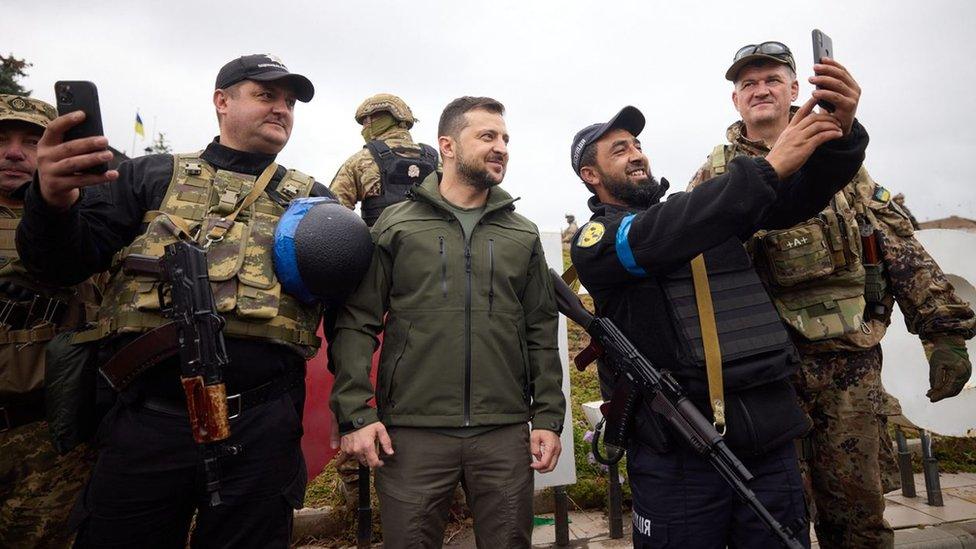Graves exhumed and Putin on counter-offensive - Ukraine round-up
- Published
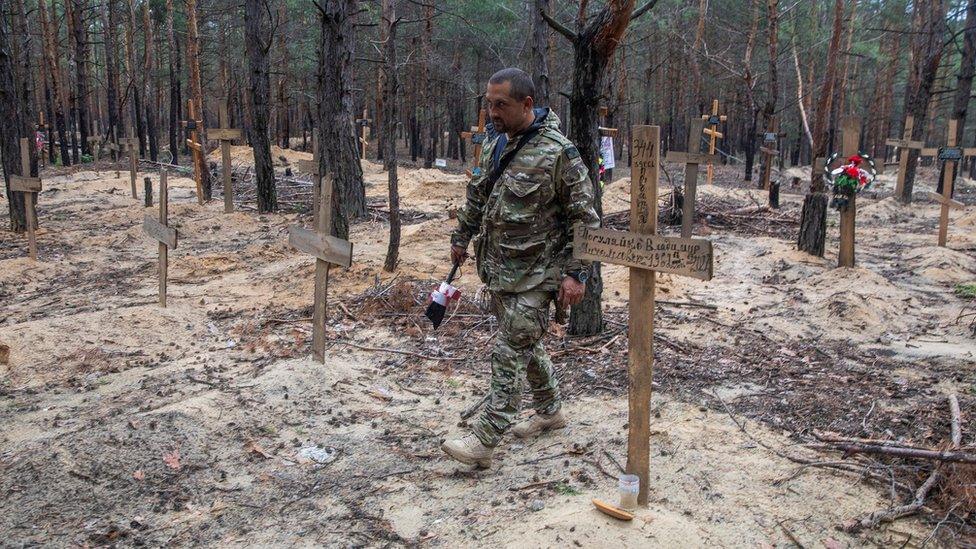
A soldier walks among the graves found in the forest
A day after announcing the discovery of hundreds of graves near the recently liberated city of Izyum, on Friday Ukrainian emergency workers began the grim task of exhuming them in order to establish the cause of death of their occupants.
The site, marked by hundreds of wooden crosses, was discovered by advancing Ukrainian forces as they retook territory from Russia in the Kharkiv region.
It is not clear yet what happened to all of the victims, but officials believe there is no doubt war crimes were committed.
"In the first grave, there is a civilian who has a rope over her neck. So we see the traces of torture," Kharkiv regional prosecutor Olexander Ilyenkov told the BBC's Orla Guerin, who visited the site while the exhumations were taking place.

Putin breaks silence on counter-offensive
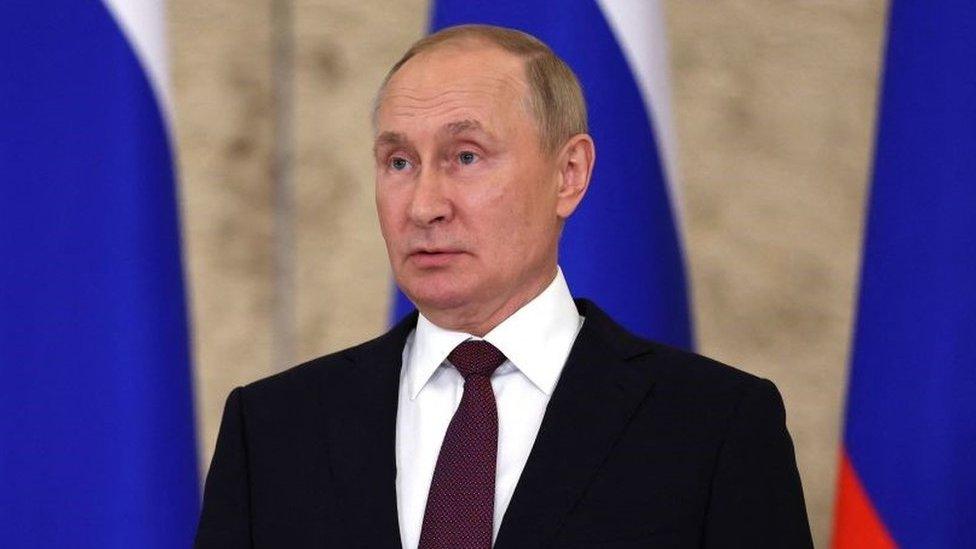
The discovery of the graves near Izyum came as Ukrainian troops retook the area from Russian forces, who occupied the city in April.
Ukraine's lightning-fast September counter-offensive brought thousands of square kilometres of territory back under Ukrainian control - a major setback for Russia.
On Friday, Russia's President Vladimir Putin made his first comments on the matter, saying that Russia's plan had not changed.
He said that his forces were still making progress in the eastern Donbas region, which remains the priority.
He also pointed out that Russia had not yet deployed all of its forces - suggesting that more forces could be deployed if necessary.

Cracks in the Russia-China relationship?
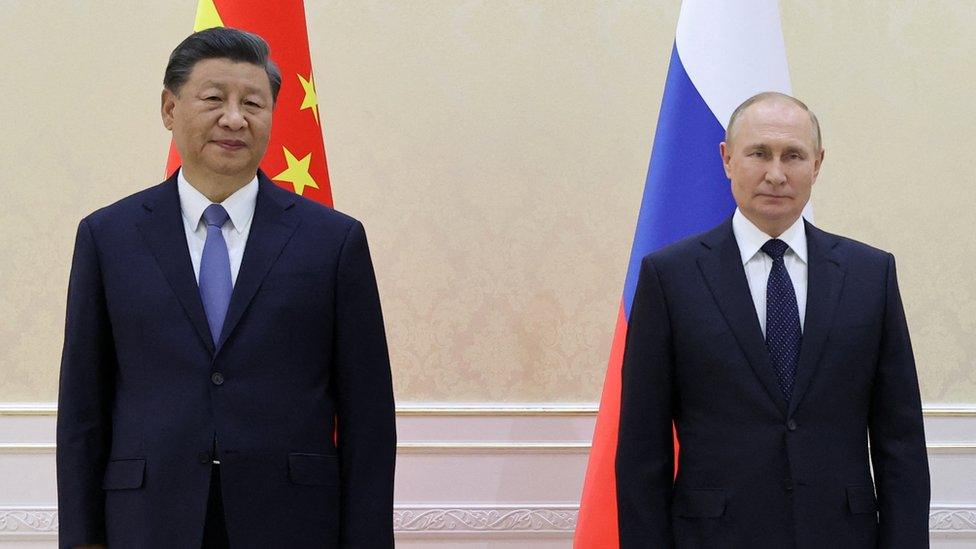
Mr Putin made a rare trip outside of Russia this week for a summit of the Shanghai Cooperation Organisation in Uzbekistan, where the Chinese and Indian leaders were both present.
It's a sign of Russia's need to foster ties with Asia, as the West sidelines Moscow over its invasion of Ukraine.
The relationship with China is of particular importance, and there are many issues on which the two countries' leaders agree.
But as our Russia Editor Steve Rosenberg points out, a pivot to the east is not that easy, and the relationship between the two is becoming increasingly unequal.

Russia turns to Asia for oil exports
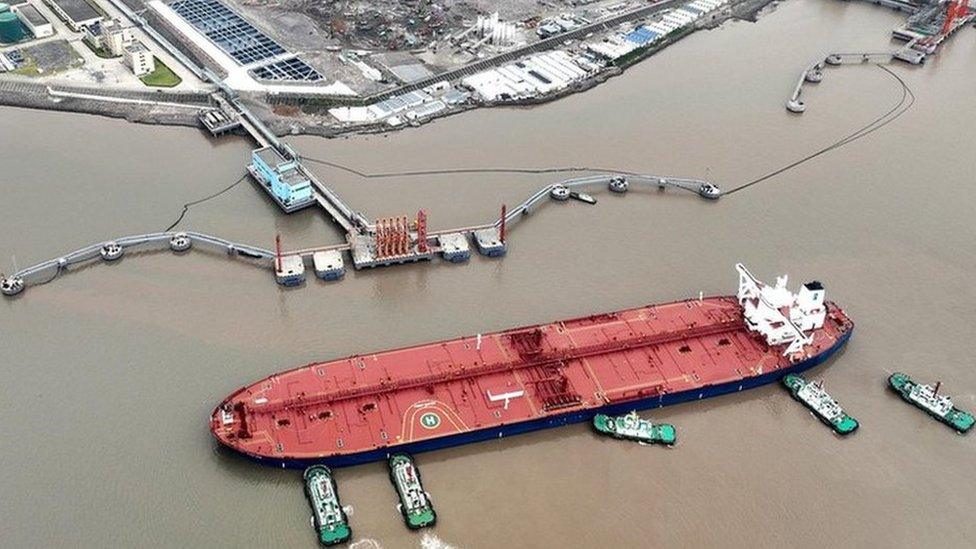
The Zhoushan crude oil terminal in China prepares to receive a tanker
Russia is also turning to Asia to sell its oil.
Exports to the European Union have fallen since the invasion, and member states have said they will ban all seaborne exports from December.
India and China have stepped in to fill the gap, now accounting for almost half of Russia's exports by sea.
Myanmar is also set to begin importing from Russia, while Sri Lanka has taken several shipments.
Related topics
- Published16 September 2022
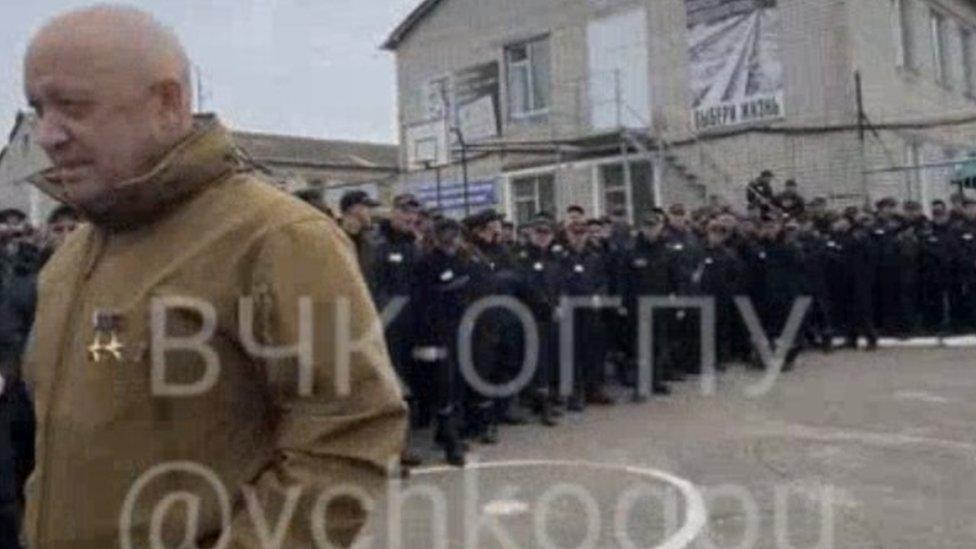
- Published15 September 2022
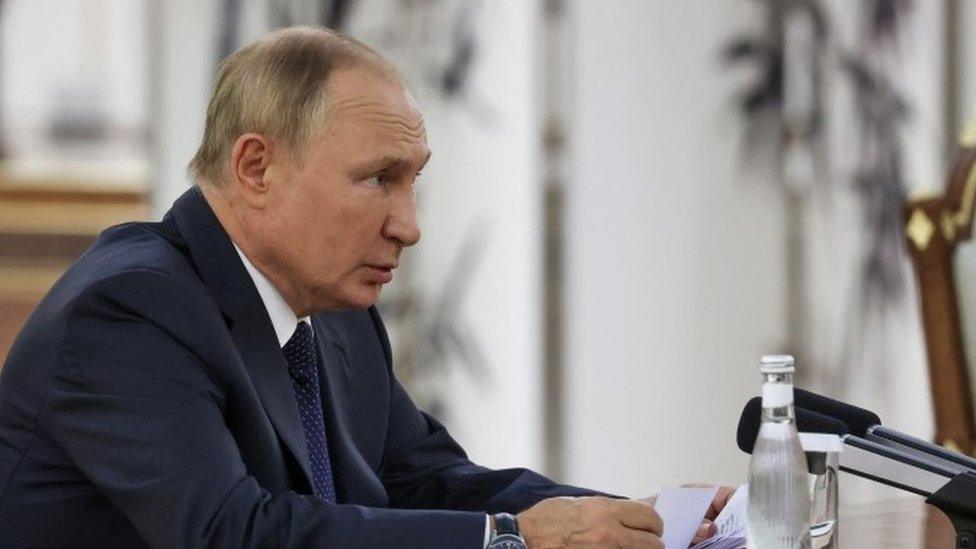
- Published14 September 2022
